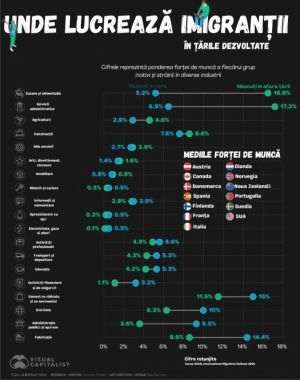The European Commission has proposed yesterday a permanent system for the distribution of refugees in the countries of the European Union, with the Eurocountries being allowed to refuse receiving migrants from outside the European community for a year, while paying in exchange 250,000 Euros for each immigrant they turn down, according to Mediafax.
Brussels officials have published yesterday a legislative proposal which stipulates the reformation of the Dublin System concerning asylum procedures. The proposals concern the activation of an "equitable mechanism", by which the 28 states of the European Union would have refugee quotas.
The quotas will be determined based on criteria such as the number of residents and the economic status, and when a state gets faced with an influx of asylum seekers that exceeds the set quota by more than 50%, it will be allowed to redistribute the migrants to other countries.
A country may refuse to accept the refugees for a year, but it will have to pay contributions of 250,000 Euros for each migrant they turn down.
The proposals include measures to accelerate the processing of asylum seekers and additional checks on the movement of migrants.
The project will be put up for debates in the European Parliament and will have to be approved by the Council of the European Union.
Poland, Hungary and the Czech Republic have announced yesterday that they oppose the initiative of the European Commission to create the new permanent migrant redistribution system.
In a common press release, Poland, Hungary and the Czech Republic have rejected the initiative of the European Commission.
"The new proposal doesn't make any sense, it violates the rights of the EU member states", the Polish internal affairs minister, Mariusz Blaszczak said.
Peter Szijjarto, the Hungarian foreign affairs minister said: "This is a form of blackmail. This is an unacceptable and non-European proposal".
Hungarian prime-minister Viktor Orban said that the EU does not have the authority to fine countries, because "the EU is not the Soviet Union". He said: "No one can force the Hungarian people to do something that it doesn't want to do".
The Slovakian foreign affairs minister, Robert Kalinak, said: "In the context of such sensitive discussions, a proposal that sends us back in time nine months and in which certain aspects disregard reality is being put on the table".
It bears mentioning that Romania is expected to receive in 2016 and 2017, 4,180 refugees that have arrived in Greece and Italy, according to the relocation mechanisms agreed with the EU.
Over the last weeks, the number of immigrants that have arrived in Greece has decreased as a result of the closing of the borders in the Balkan region and of the EU - Turkey deal which stipulates that refugees that have arrived on the Greek islands should be sent back.
The EU countries have agreed last year to redistribute 160,000 refugees across Europe, in two years, but so far only a small number have been allocated.























































